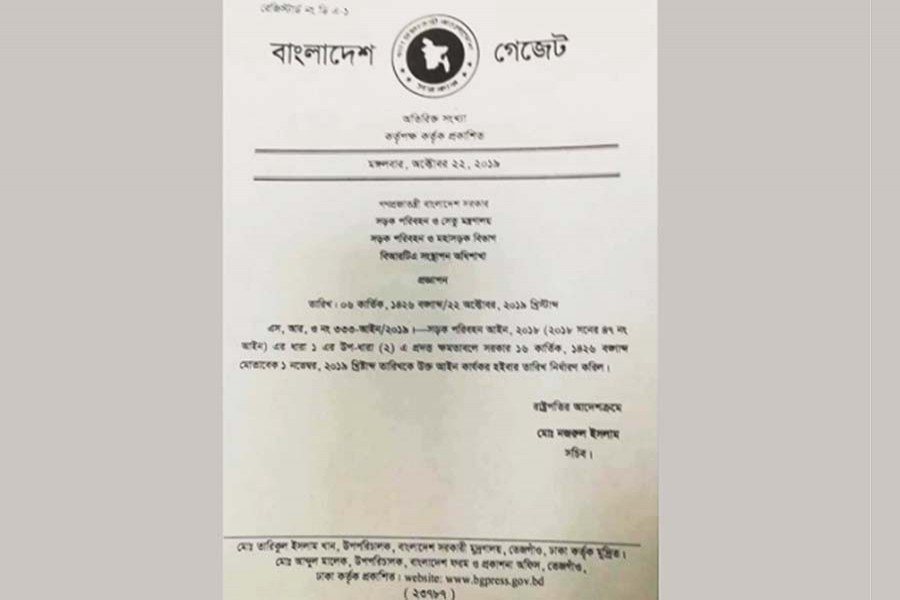Years ago when students, even minor school kids, took to the streets protesting traffic indiscipline, it did not look like a ripple to be lost soon in oblivion. Many considered the unprecedented event a stark eye-opener for the government to act in a meaningful way. The protest of the youngsters -- a massive and well organised outrage to say the least -- succeeded in having the authorities to sit up. An Act (the Road Transport Act 2018) was passed in parliament, but it soon appeared to be an attempt to somehow calm the heat sparked by the protest. There was, in fact, no move to implement the Act in order to discipline the perilously unruly road transport system of the country, especially in the capital city. The rules of procedures supposedly required to make the Act effective were not framed. Sadly, there are no indications, reportedly, from the relevant government agencies of progress of work in this regard.
Newspapers report that the government's designated agency the Bangladesh Road Transport Authority (BRTA) was working on the rules of procedures in order to effectively implement the Act; but there are controversies whether absence of rules is solely instrumental in rendering the Act non-functional. Road safety campaigners hold that absence of rules is not a roadblock to implementing the Act. They allege the government is delaying implementation of the law without any valid ground as many laws were made effective in the past without backup rules. The Road Transport Act 2018 and the Digital Security Act 2018 were passed on the same day, but the latter became effective though no rule was formulated to enforce it. The campaigners also allege that the authorities are more concerned with securing the interests of transport owners and workers by delaying enforcement of the law at the expense of people's misery and loss of lives in fatal road crashes.
Holding up any forward move to make the law effective reflects a sense of apathy to public concern about road safety and traffic indiscipline. If the authorities want to implement the law or at least make some of the specific sections of the law enforceable, why are they sitting on it for so long? Meanwhile, anarchy on the road is reigning supreme and more and more lives are getting perished under the wheels.
So, what was deemed as no small ripple years ago and dubbed unprecedented had reasons to surface again, and so it did. Although this time the protesters' demand includes half the bus fare for students, the issues regarding disciplining the rampant lawlessness on the roads are the same as before. Terming the protests as politically motivated is, in all fairness, not the right thing to do. Rather, such a stance on the part of the government lends a wrong signal not just to the protestors and the common people, but it also amounts to shielding the incompetence and even criminality of all those involved in traffic management. Clearly, the stake is great here. But shouldn't the government prove it can prevail on those who pull the string from behind the scene?


